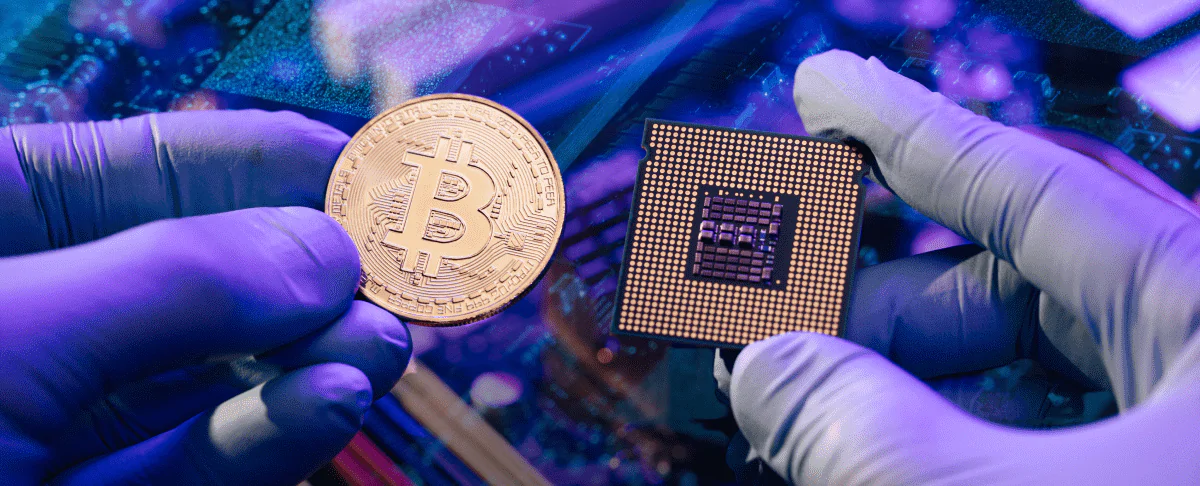Greece has made significant efforts to adopt a tax policy on crypto assets as the use of cryptocurrencies grows globally. In January 2025, the Greek government introduced new tax regulations for cryptocurrency transactions.
12.07.2024

The two American companies VivoKey and Dangerous Things have developed a new technology, the implantable cryptocurrency wallet Apex. As covered by Decrypt, the innovation enables cryptocurrency transactions to be made using the embedded subdermal chip.
For years, VivoKey and Dangerous Things have developed and populated devices that apply NFC and RFID (radio-frequency identification) technologies. Once implanted, the Apex device, approximately tablet-sized, uses chips placed under the skin to store the information needed to access cryptocurrencies. These chips are readable by smartphones and other electronic devices, allowing the owners to perform financial transactions. It supports several cryptocurrencies and stores keys directly on the implanted chip.
The Apex concept, according to Amal Graafstra, founder and CEO of VivoKey Technologies and Dangerous Things, is “to make cryptocurrency operations effortless.” It produces the enclosed key and signature for transactions through cryptocurrencies like Bitcoin within the device, while the mobile app serves only as an interface and does not store private keys.
Currently, Apex works with the Satochip wallet, the Seedkeeper app, and a specific wallet for memory cards in the Status IM application across various blockchains. The device costs $349.
Apex represents the latest innovation in biohacking—the act of using technology to enhance human performance. Biohackers use implantable chips for anything from access control to making payment transactions. Apex could also help solve challenges like protecting personal data, said Amal Graafstra.
In early April of this year, a group of developers from the TON ecosystem, called the TON Society, announced a partnership with HumanCode, which specializes in artificial intelligence solutions. The major aim of this partnership is to implement biometric identification in the well-known messenger Telegram. This will be done via a system that authenticates users by scanning their palm prints.
The technology is expected to address the issue of fake accounts and become essential in operations such as cryptocurrency airdrops, requiring identity verification to guarantee transaction confidentiality.
Implantable cryptocurrency wallets like Apex mark the future of financial technologies. Apex is a significant step in this direction, paving the way for cryptocurrency users to explore a plethora of new possibilities. The adoption of such technologies may completely transform how digital assets are stored and controlled.
With the increasing popularity of cryptocurrencies, the demand for stable and secure storage solutions is on the rise. Apex subdermal implant chips provide a more secure means of accessing information, as the chip requires physical interaction to access data, greatly complicating key theft or loss.
Implants like these could have applications beyond storing cryptocurrencies, including managing access to various types of data and performing other security and identification functions.
However, implantable device technologies also pose ethical and legal concerns. Security, confidentiality, and data protection challenges arise with the use of implants. Appropriate norms and standards are necessary to regulate such technologies.
A significant concern is that the use of such devices must be voluntary. People should have the option to choose whether to implant chips into their bodies, being fully informed of the risks and benefits.
Moreover, questions of data rights need to be addressed. Deciding who owns the data stored on such implantable devices and protecting this data from unauthorized access will be critical.
Implantable cryptocurrency wallets such as Apex represent a transformative step forward for the financial technology and biohacking industries. They unlock new possibilities for securely and conveniently storing and using cryptocurrencies, as well as for other data management and security functions.
Yet, the implementation and use of such technology must address various ethical and legal challenges to ensure user rights and data safety while developing appropriate norms and standards for governance. Overall, implantable cryptocurrency wallets promise to reshape how digital assets are stored and managed, providing enhanced security and efficiency for users.




